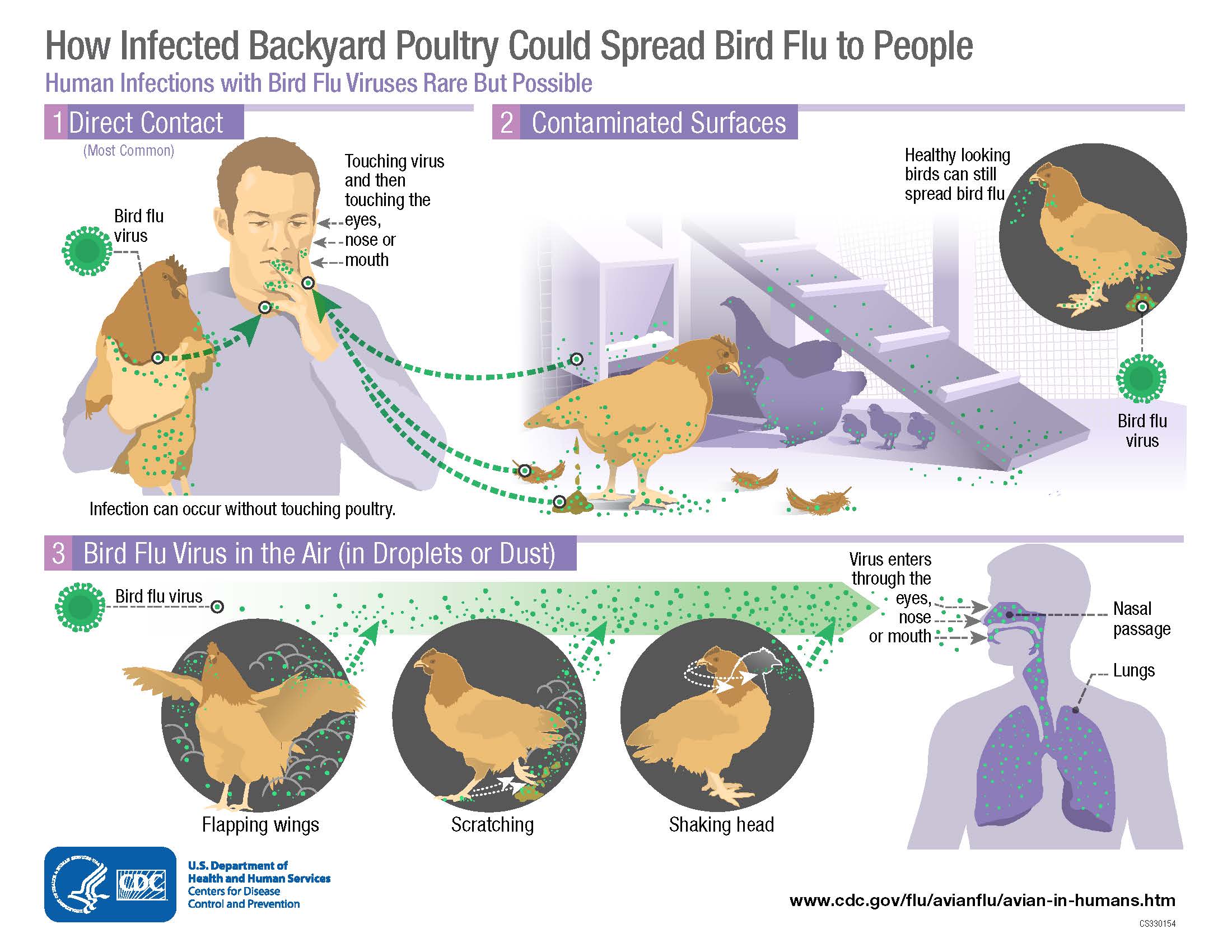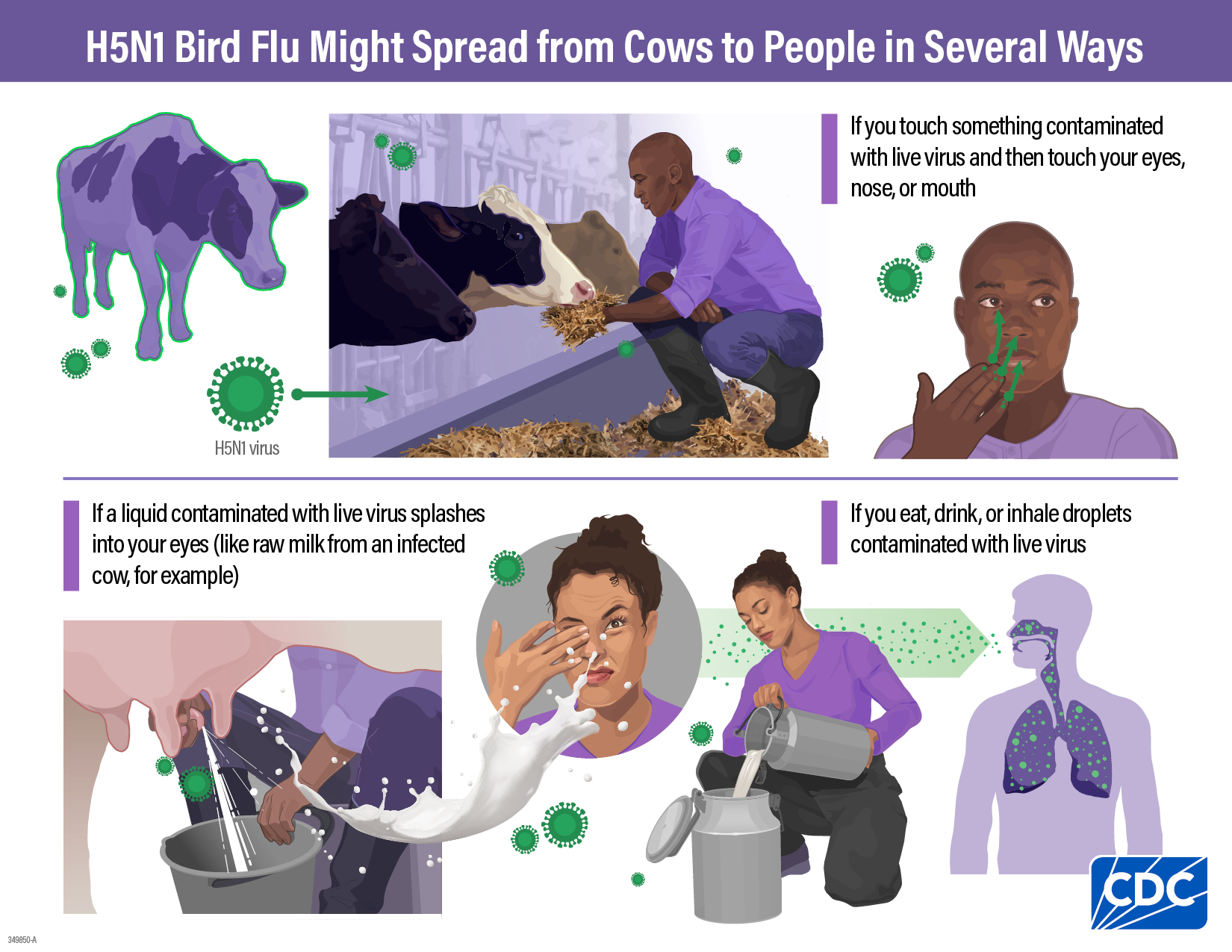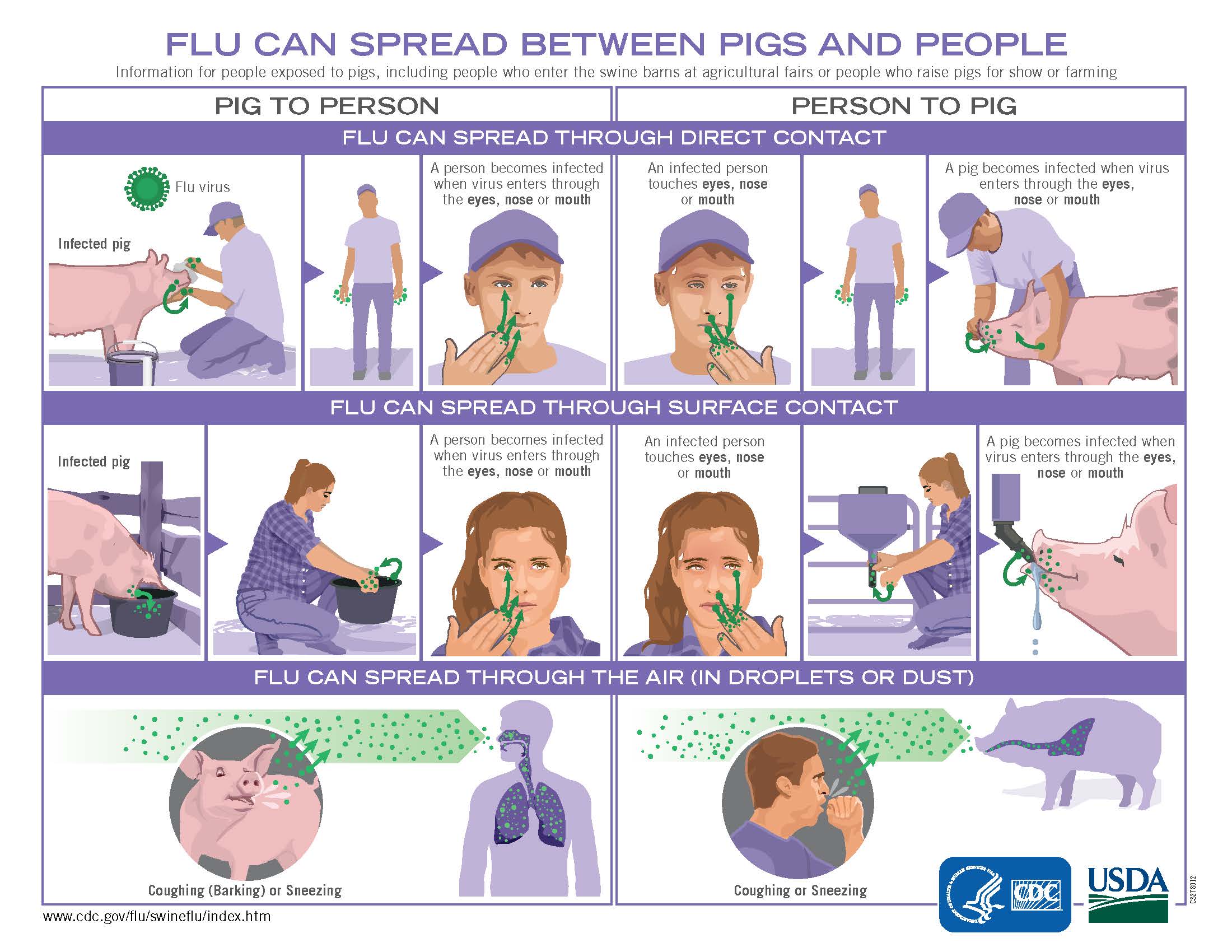
- Home
- Diseases & Health Topics A-Z List
- Novel Influenza
Novel Influenza
Health care providers, administrators, and clinical laboratory directors should report confirmed or suspect cases immediately to their Local Health Department by telephone.
Novel influenza infections are human infections with influenza A viruses that are different from currently circulating seasonal influenza (H1 and H3 viruses). Novel viruses include those that are subtyped as nonhuman in origin and those that are not able to be subtyped using standard laboratory methods and reagents. Human infections with an influenza virus that normally circulates in swine and not people are called variant viruses.
Human infections with variant viruses have been detected in the United States. Avian influenza or bird flu refers to the disease caused by infection with avian influenza A viruses that naturally spread among wild aquatic birds worldwide. These viruses can infect domestic poultry and other bird and animal species. Bird flu viruses do not normally infect humans, however, sporadic human infections with bird flu viruses after close contact with infected birds or animals have occurred.
Rapid detection and reporting of human infections with novel influenza A viruses is important to facilitate prompt awareness and characterization of influenza A viruses with pandemic potential and accelerate the implementation of effective public health responses.
The Department's Communicable Disease Service is working closely with state and federal partners to monitor the current H5N1 bird flu situation in wild birds, poultry and dairy cows, and will provide updates as information is available. Sporadic infections with highly pathogenic avian influenza A(H5N1) viruses in mammals have been reported in the United States, Canada, and other countries, but the risk to the general public from these viruses remains low. Currently there are no confirmed influenza A(H5N1) human cases in New Jersey.
H5N1 Bird Flu: Protect Yourself When Working with Wildlife English | Spanish
NJDOH: Bird Flu Prevention Flyer for Parents English | Spanish
NJDOH: Information for Workers English | Spanish
How Infected Backyard Poultry Could Spread Bird Flu to People (CDC)

H5N1 Bird Flu Might Spread from Cows to People (CDC)
Flu Can Spread Between Pigs and People (CDC)
H5N1 Bird flu: Current Situation Summary
Disease Reporting
- Public Health Investigation Guidance for Avian Influenza A(H5N1)
- Investigation Checklist for Avian Influenza A(H5N1)
- Individual Risk Assessment Tool for Avian Influenza A(H5N1)
- Clinical Risk Assessment Tool for Avian Influenza A(H5N1)
- Accelerated Subtyping of Influenza A in Hospitalized Patients (LINCS-1/16/25)
- First H5 Detection in Wastewater in New Jersey (LINCS-12/13/24)
- Influenza A(H5N1) Virus: Identification of Human Infection and Recommendations for Investigations and Response (CDC HAN 4/5/24)
- Variant Influenza Viruses in Humans (LINCS-7/28/23)
- Surveillance Criteria and Testing for Variant Influenza A in Humans
- CDC Novel Influenza A Case Report Form
- Persons Exposed and Symptom Monitoring Tool for Avian Influenza A (H5N1)
Resources & References
- New Jersey H5N1 Resources
- Collection and Transport of Clinical Specimens for Influenza Testing
- Conjunctival Swab Specimen Collection for Detection of A(H5) Viruses
- Request for Immunological/Isolation Services-Viral Testing Unit - SRD-1 Form
- New Jersey Department of Agriculture: Animal Health
- Public Health Infrastructure, Laboratories & Emergency Preparedness
CDC Resources:
- Information for Workers Exposed to H5N1 Bird Flu
- Protection When Working With Farm Animals - English | Spanish
- Information for Fair Exhibitors to Help Prevent Influenza
- Information on Avian Influenza
- Bird Flu in Pets and Other Animals
- Information for Specific Groups
- Reducing Risk for People Working With or Exposed to Animals
- Information on Swine/Variant Influenza
Additional Resources:
- HPAI Guidance: Public Spaces (LINCS - 3/19/25)
- OSHA: Avian Flu Quick Card – English | Spanish
- Information on animal to human spread of influenza (National Association of Public Health Veterinarians)
- USDA: Avian Influenza Information for Hunters
- USDA Animal and Plant Health Inspection Service: 2022 Avian Flu Confirmations
- World Health Organization: Avian Influenza
